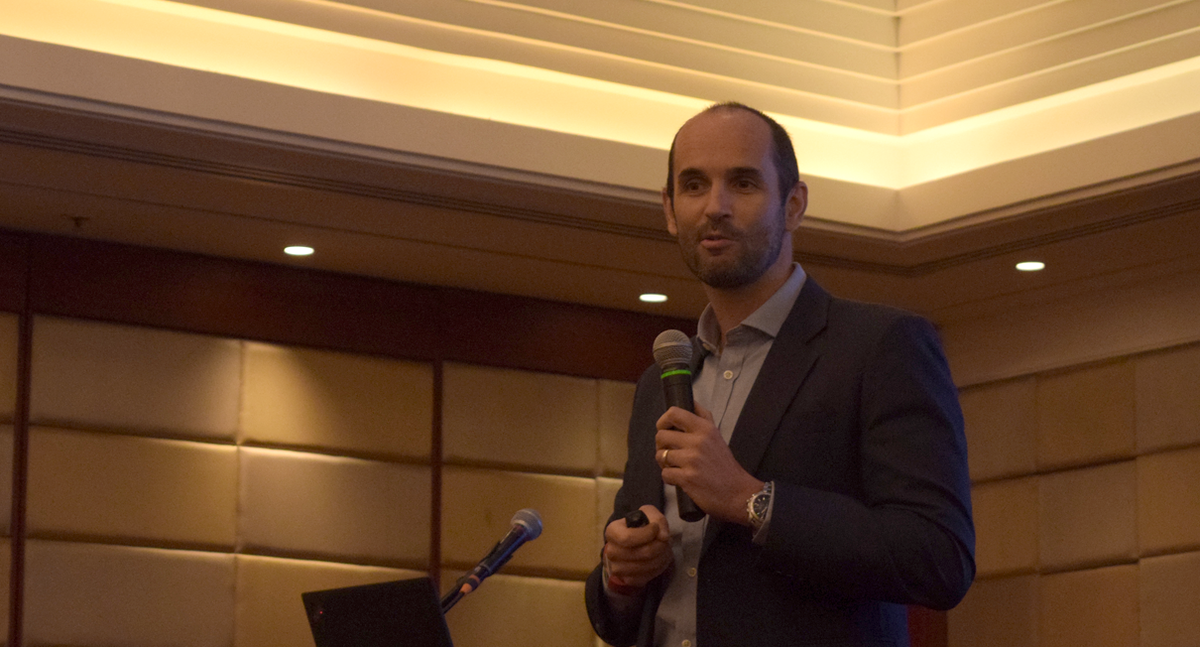Chief Operating and Chief Marketing Officer for Microsoft Philippines Cian O’Neill presented the results of the Microsoft Asia Digital Transformation study, February 23 in Makati, which sought to understand how business leaders are embracing the digital era.
The study surveyed 1,494 business leaders from Asia, 111 of which were from the Philippines. The respondents were pre-qualified as being directly involved in shaping their business’ digital strategy.
According to the study, a large majority of business leaders in the Philippines believe that there is a need to adapt to the changing business landscape with 86 percent agreeing that companies need to become “digital businesses” to drive growth and another 86 percent believing that new data insights can lead to new revenue streams for their businesses.
These numbers, however, have yet to reflect to actual strategies put in place with a mere 32 percent of business leaders having full digital transformation strategies for their companies and 43 percent being in the process of transforming select parts of their businesses through specific initiatives. To boot, 25 percent of respondents had a very limited or even no strategies in place.
With this in mind, the respondents of the study gave several barriers that hamper digital transformation in Asia Pacific. These include: lack of organization leadership in coming up with, planning, and executing strategies; cybersecurity concerns; lack of digitally-literate or skilled workforce able to cope with and optimize digital businesses; and lack of government policies and ICT infrastructure to provide support for digital transformation.
“It’s concerning to see that while there is widespread acknowledgement on the need to transform, they are doing so incrementally. With constant pressure from newer, agile and tech savvy players disrupting across industries in Asia, the transformation of products and new revenue models [provide] the greatest opportunity for organisations to truly lead rather than disrupted. Leaders need to rethink business models, find new data insights which lead to new revenue streams. And they need to do this by embracing a different way of bringing together people, data, and processes which create value in a new digital business,” O’Neill commented.
Among the different areas of focus in the digital transformation of local businesses, leaders put customer engagement as top priority, followed by employee empowerment, then by operation optimization, and product and business model transformation last.
To reach their goals of digital transformation, 84 percent of the leaders surveyed believed cloud computing as playing a crucial role in the future of their businesses. Businesses are also looking into new technologies to accelerate the transformation. At the top of the list is IoT, followed by artificial intelligence, then next generation computing, wearable tech, and quantum computing for big data analytics. Businesses in the Philippines will see more of these within 12 to 18 months.
“Emerging technologies, specifically, cloud, analytics and new capabilities like AI and IoT will give organisations new capability to transform. But real transformation only happens when they bring their people along with them. Equipping employees with the right tools to enable them to be part of solution to be more responsive, data driven and customer centric are also key,” said Microsoft Philippines managing director Karrie Ilagan in an official statement.
Microsoft’s infographic on the study can be accessed here: Philippines DT Study Infographic
